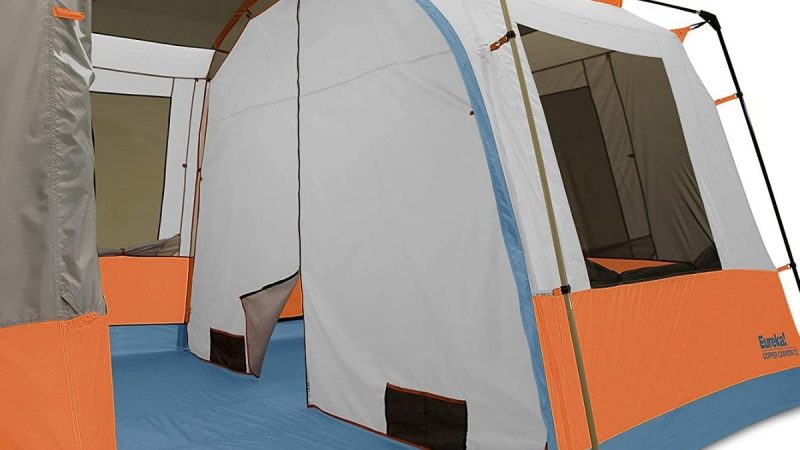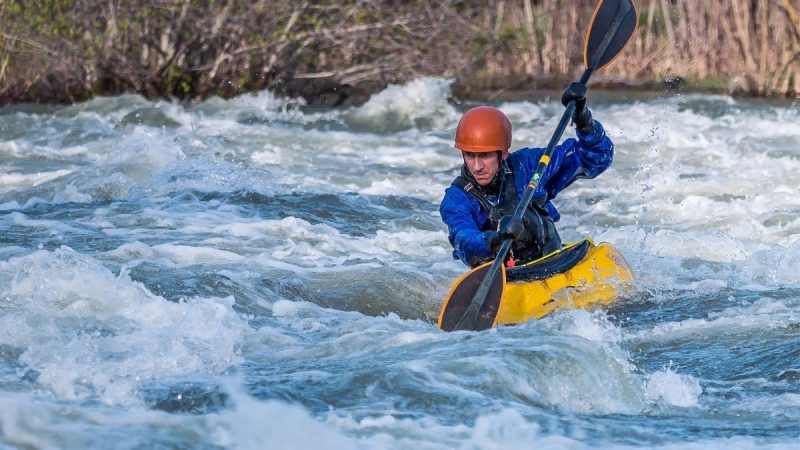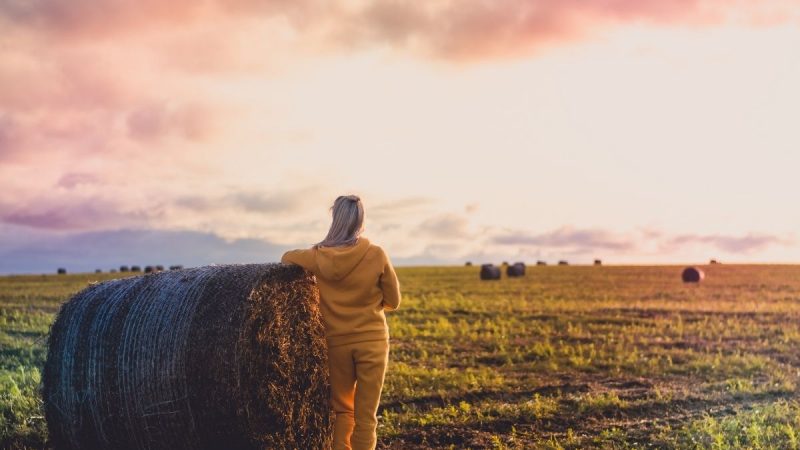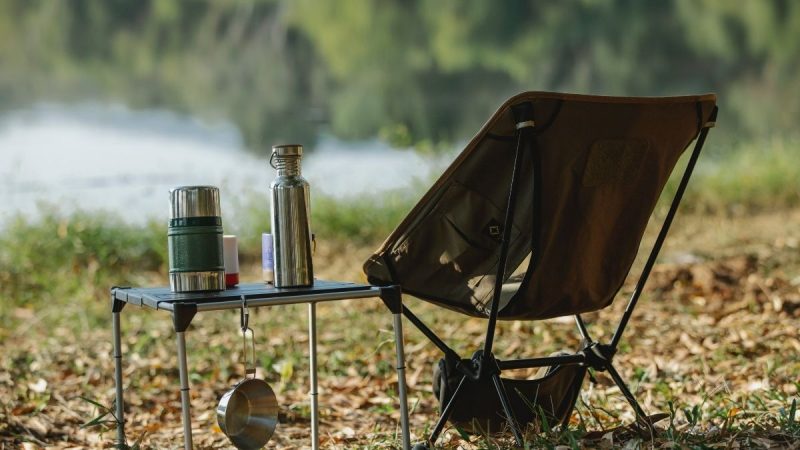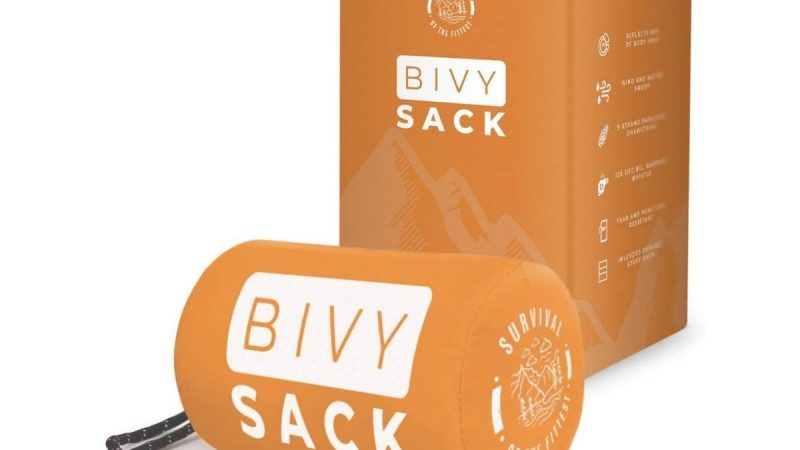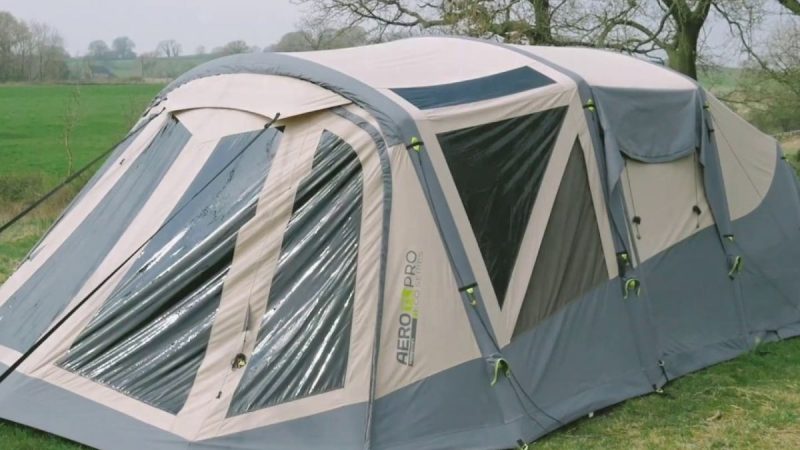7 Essential Precautions and Tips for Camping Stove Safety – Camping in the New Year
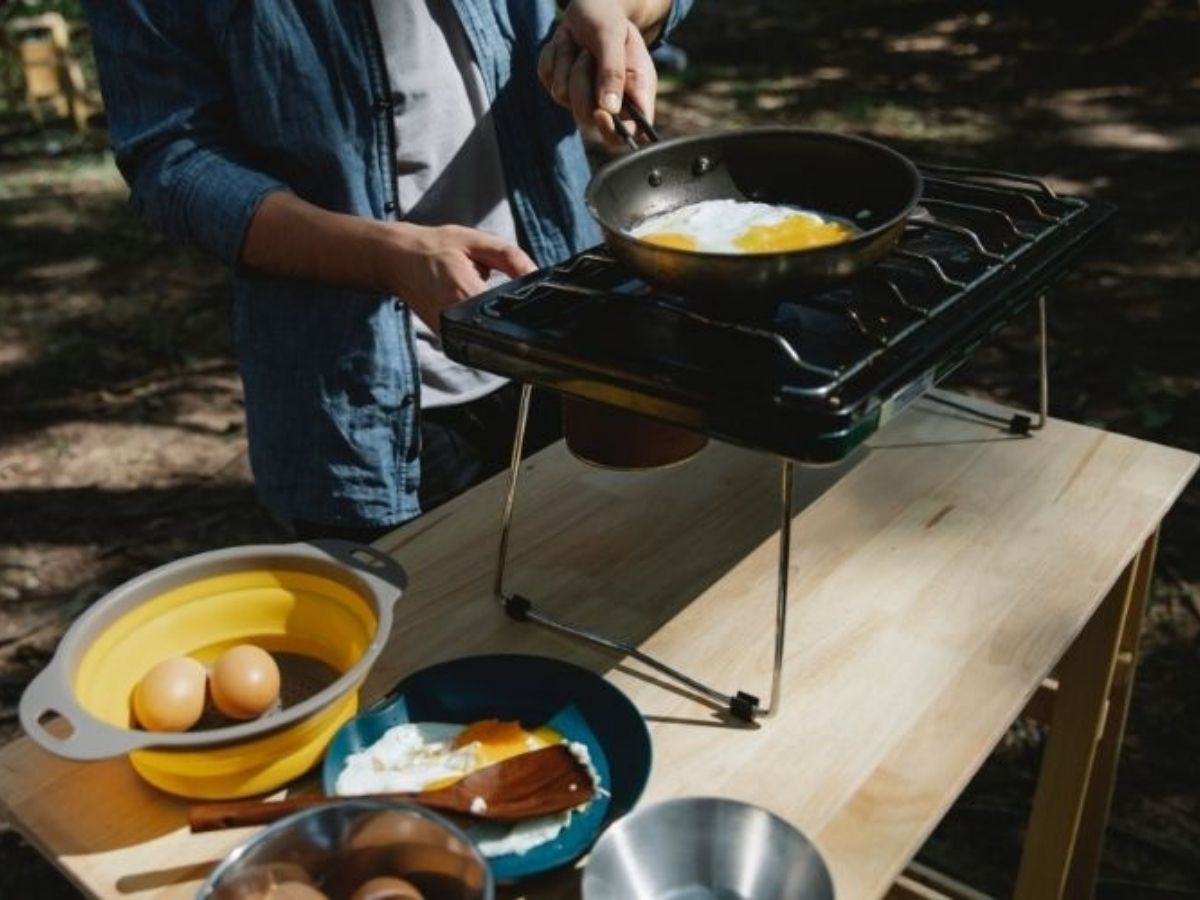
It is an essential part of every backpacker’s journey to pay attention to Precautions and Tips for Camping Stove Safety. A camping stove is a great option for those who wish to have a memorable outdoor trip. It is important to know the precautions and safety tips for the proper use of a stove.
Camping stoves can either be powered by disposable propane cylinders or a rechargeable battery pack, which is most common with newer propane stove models. Regardless of your choice, make sure you know how to properly use your camping stove.
It is essential to find out if a particular model of a camping stove can run on or needs a special kind of propane cylinder that you cannot purchase at the market. If this is the case, make sure you have a spare cylinder in advance before embarking on a journey.
Why Should You Have a Stove when Camping?
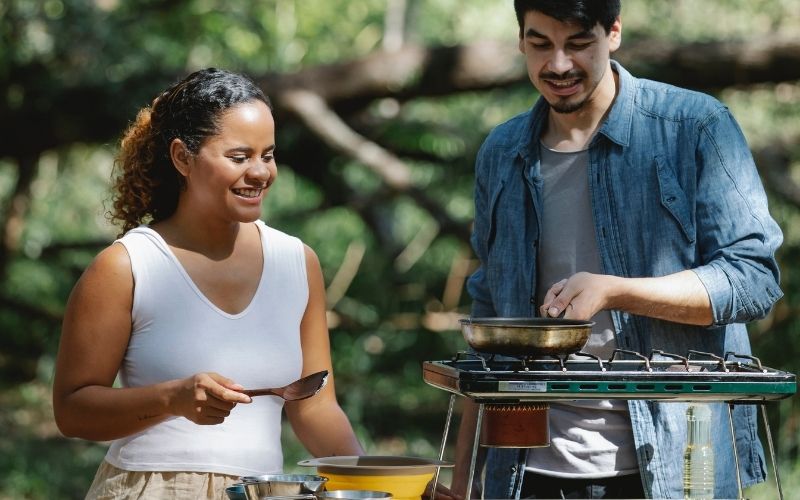
Some people prefer camping without having a stove because food is ready-to-eat and it is easy to eat outdoors. A campfire can keep you warm and roasting your meat can be fun. The safety precautions below will give you more reason to use a camp stove.
However, having a camping stove is a great idea for you to practice your outdoor cooking skills during a vacation. You can prepare your dishes from pre-packed food items and fresh ingredients.
Make sure that the camping stove is packed properly in a hard case or a bag because it can easily damage other gears inside a backpack. Keep the propane cylinder attached to the stove but out of reach of children.
Pack an Emergency Roadside Kit with the Stove
After packing your camping stove inside a backpack, make sure you bring an emergency roadside kit in case of emergencies like running out of fuel or getting stranded on the highway. The basic roadside kit should include flares, fuses, batteries, signal lights, and food items like energy bars and water bottles.
How to Use Camping Stove Safety?
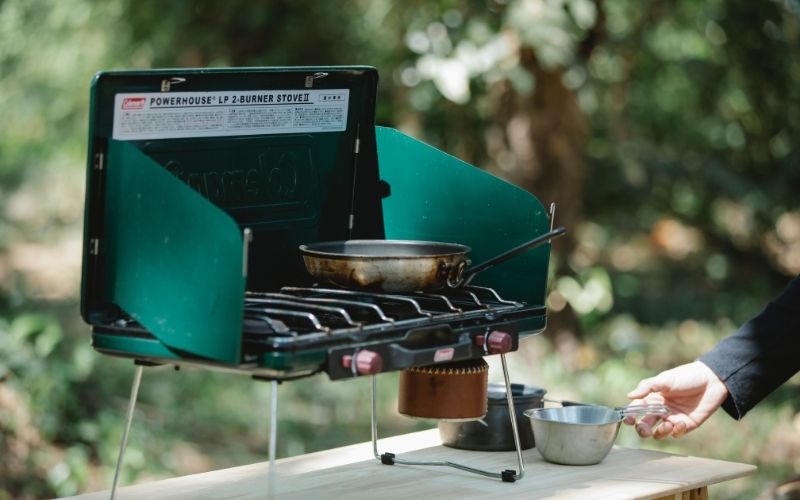
When you are concerned about precautions and tips for camping stove safety you should be first aware of how to use them efficiently. You just have to be careful with the amount of fuel being used, how you will transport it and store it properly.
1. Use Proper Fuel
The first thing is to use fresh disposable propane cylinders for your camping stove because they are specially made to be resistant to leakage. If you have a rechargeable battery pack camping stove, make sure it is fully charged before going on a trip.
2. Know How Much Fuel You Need
If you are camping for a long period, make sure you have a tank or two with enough fuel for the entire time to save you the trouble of having to refill often. If your camping will be short like 3-5 days, pack more than you need and discard the leftovers upon returning.
3. Transport and Store Properly
Never leave a camp stove unattended especially when it is still hot because it can be very dangerous to children or pets that might touch it accidentally. Even propane cylinders are not free from accidents because they can explode if the heat is too much for them to handle.
Always store the propane cylinders with safety caps on them and make sure they are hidden from kids by putting them in a safe cabinet or place where young children cannot see or reach easily.
4. Be Alert of Propane Leaks
It is important to check your camping stove now and then for any signs of leakage or abnormality to prevent hazardous situations. Always keep the stove operating in an open area away from any inflammable materials like gasoline, paint thinner and other chemicals.
Even when transporting the propane cylinders, you should not squeeze them too tight to avoid leakage. Make sure they are tightly attached to the camping stove so that no gas will escape.
5. Start Cooking Indoors First
Before using your camping stove outside, make sure you test it at home first to see if the entire system is working properly and that there are no leaks or malfunctions. When cooking outside, stay away from dried leaves and other combustible materials found outdoors to avoid any accidents.
6. Clean after Use
Before packing the camping stove, make sure you are done with cooking and all gas is turned off. Wipe spilled grease or leftover food thoroughly to avoid any accidents before putting them inside a backpack. Do not forget to clean up the propane cylinders as well.
7. Keep Children Away from Stoves
Children should never be around when cooking outdoors especially with a camping stove. It is best to go on a trip alone or with other adult friends that can watch over the kids when cooking outdoors. Teach your kids how dangerous it is to play with appliances they are not familiar with.
7 Precautions and Tips for Camping Stove Safety – Tip’s for Backpackers
Do Not Use the Stove Near Inflammable Places
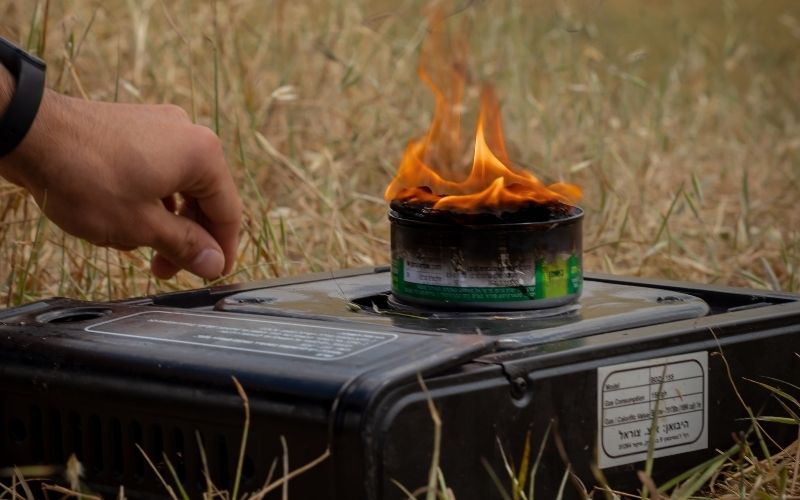
The best example is dry leaf forests. Never use the camping stove near dried leaf forests because it will cause a wildfire to break out which can be very dangerous especially for people who are far from where they parked.
Do Not Use the Stove in Your Tent – It Would be Crazy if You Destroy the Tent
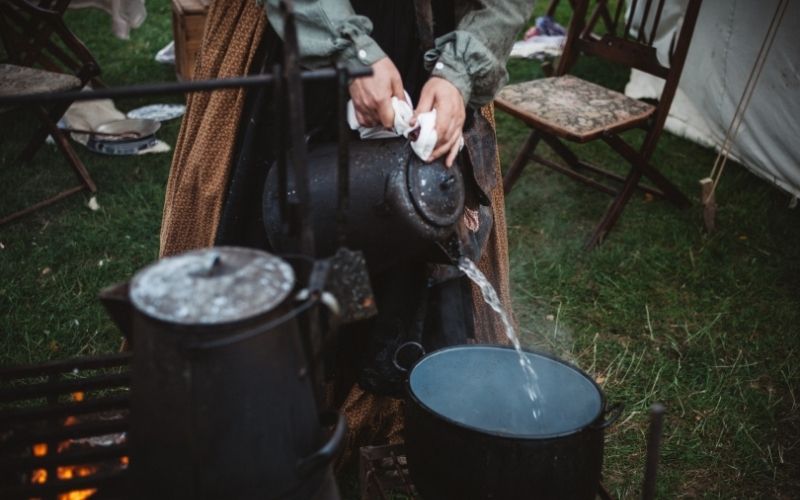
You have to be very careful with your decisions. It would be stupid if you destroy the tent because of a camping stove. Hence, always keep your tent and cooking stove separate.
New Gas Cylinders Should be Used
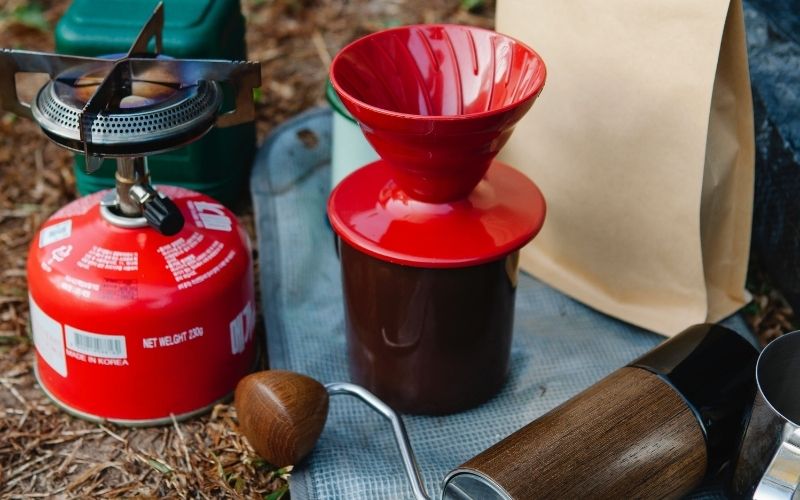
This way, you know that the propane cylinders are safe to use. If you have used a gas cylinder before, beware of any leaks. It is best to buy new ones with safety caps on them.
Clean Your Stove Each Time You Have Used it
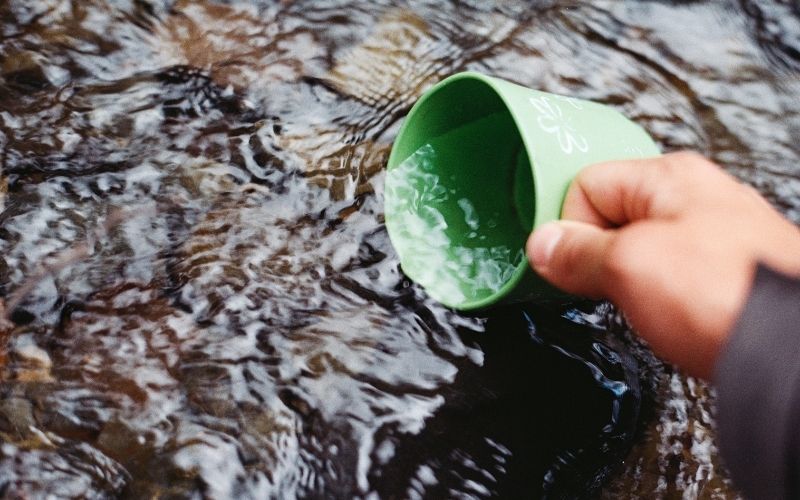
This includes the gas container. Make sure that there are no spills because this could cause a fire in case anything is flammable around it. Moreover, not cleaning your stove every time could lead to misuse.
Be Safe from the Food You Prepare
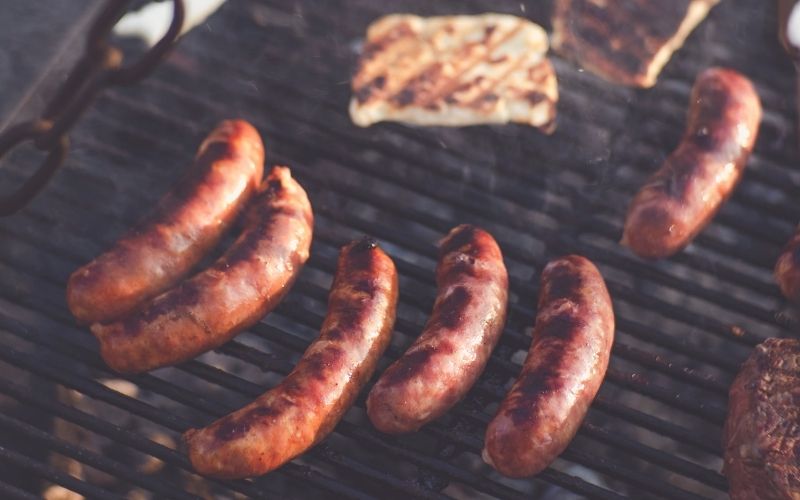
The food should never be taken out while cooking is going on because a spark could cause a fire nearby and spread throughout the campsite.
Don’t Leave Your Stove Unattended
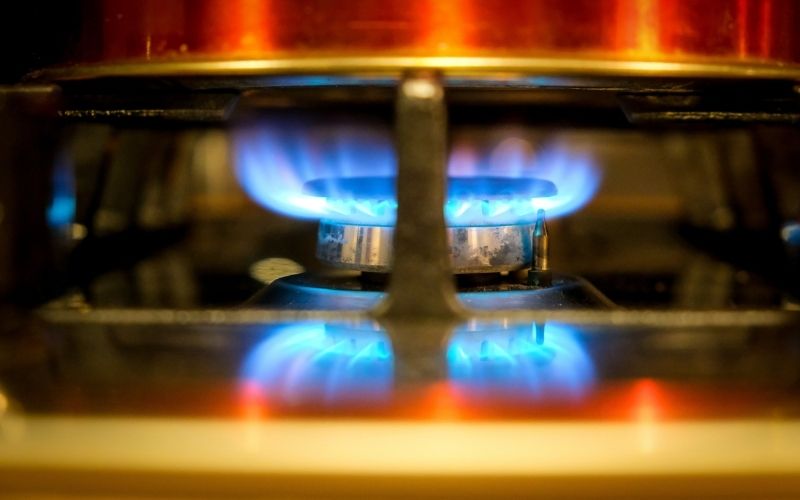
Don’t even by mistake forget to turn it off. Never leave your stove alone once you start cooking because if something is wrong with the flame, gas leakage, or anything else that may go wrong, you would not be there to control things. It will lead to a devastating fire.
Reading and Checking How to Use Your Stove – the Manufacturer’s Instructions
Always read the manual that came with your camping stove. This way, you know how to use it efficiently and safely for yourself and for others who will be using it as well.
More Tips
- Never use a stove that was not intended for cooking outdoors. This can be very dangerous because gas leakage and other malfunctions could occur.
- Always make sure you buy new gas cylinders from a trusted shop. The safety cap should look like the original one to assure yourself that nothing is wrong with it before using it.
- Protect your camping stove from any type of damage especially from sharp objects, heat because it could cause a fire.
- If you have children around while cooking outdoors, teach them how to protect themselves in case something unexpected happens. Teach them that there is no place for playing when food or fire is involved.
- Never cook if you feel tired or sleepy. You should always be alert in case anything goes wrong.
- Never place your camping stove in any inflammable place or near any source of heat because it could cause a fire hazard.
Recommend Camping Stove for You
Coleman Gas Camping Stove
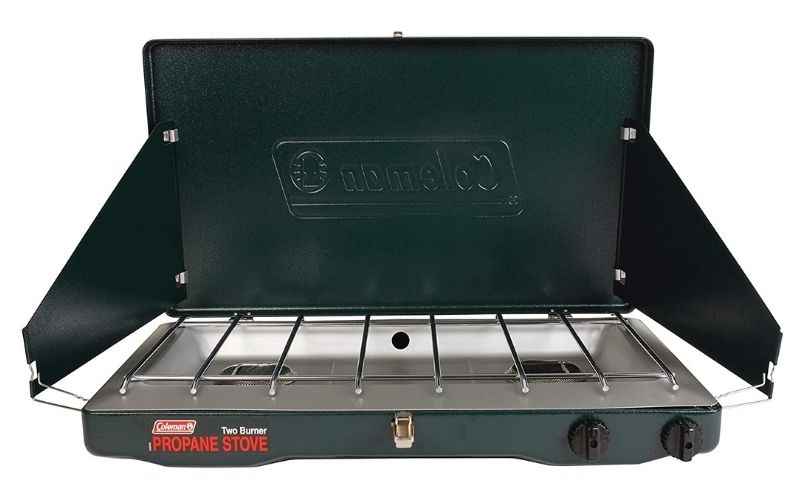
This stove is a great choice if you’re looking for a practical and easy-to-use outdoor burner. The stove is great for cooking outdoors while camping, hunting, fishing, etc. Moreover, this product is specifically designed to meet your cooking needs as well as safety concerns.
Features
- Cooking power upto 20,000 BTU’s
- 2 Adjustable burners
- Wind blocking panels
- 3-year warranty
- Run time up to 1 hour on high
Price – $ 77.00
Available on – Amazon
Camp Chef Everest 2 Burner Stove
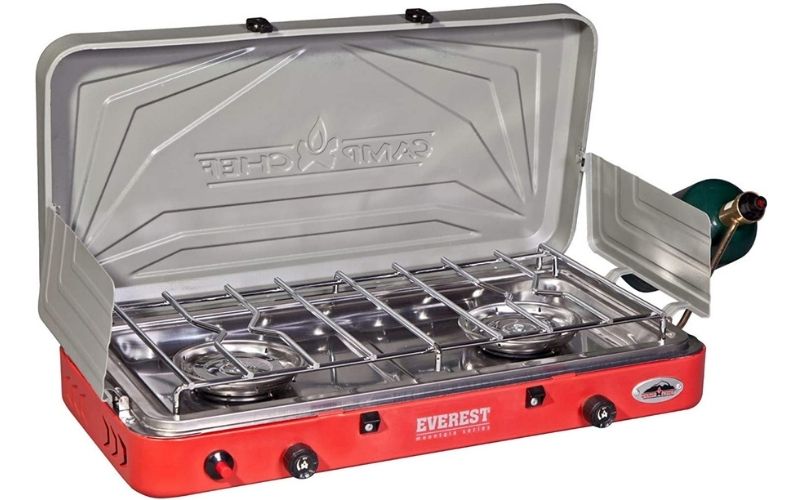
This is a fabulous choice by most backpackers and campers. These special features will make your trip memorable too. Ideal for outdoor camping needs, the stove is also compact and easy to use.
Features
- Built with durable construction for years of service
- Includes wind blockers
- Matchless ignition
- Stainless Steel
- Propane based
Price – $ 149.99
Available on – Amazon
FAQs Related to Precautions and Tips for Camping Stove Safety
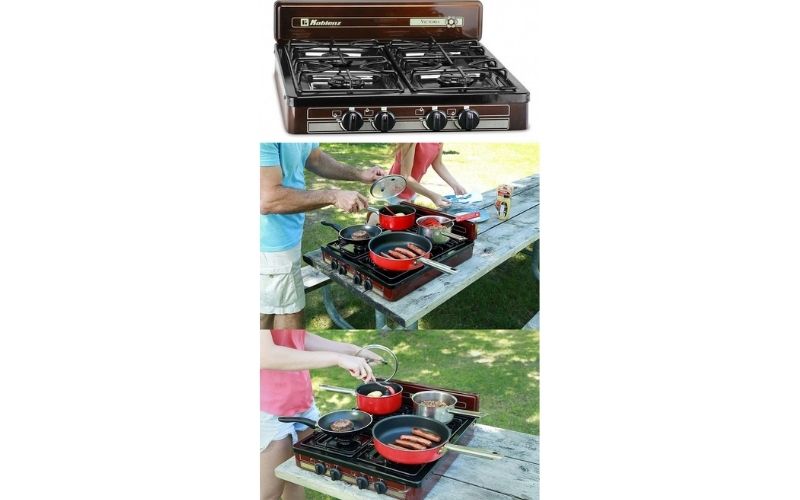
How to Clean a Stove?
Be sure to completely turn it off after each use. Make sure the cooking area is cool and safe before cleaning. Clean the outside with hot soapy water and then dry it. Check for any rust or corrosion on the stove that needs to be cleaned off.
Why is My Camping Stove Not Working?
It could be that there is a problem with the gas cylinder. It is best to test it by connecting another cylinder to the stove which you know is safe to use.
How Do I Turn On My Camping Stove Without a Match?
You can make do with a lighter. It will work but try not to use it for cooking after that because you might run out of fuel.
Where Can I Buy New Gas Cylinders for My Camping Stove?
You can find them in hardware stores or supermarkets that usually have a section specifically dedicated to propane.
Are Camping Stoves Safe? Why are There Precautions?
Camping stove safety precautions are meant to ensure that you will have a safe cooking time outdoors.
Can You Use a Camping Stove Inside? What are the Risks?
It is not advisable to use a camping stove inside because it emits carbon monoxide which is a deadly gas. Your stay inside will be shortened if you do this, and of course, the risk of starting a fire is greater.
When Should You Turn Off Your Camping Stove?
Turn it off when you are finished cooking. If you are not going to use it for a long period, the best thing to do is turn it off and let it cool down completely before storing away.
Conclusion
Precautions and tips for camping stove safety are important for you to know because it protects you from accidents that might cause injury or death. Also, it ensures that your camping stove is in good condition and can serve you for years. Make it a habit to be careful with your cooking needs because the consequences are serious.
Moreover, make it a habit to always follow the safety precautions and tips for camping stoves because there are accidents that could happen at any time. Protect yourself and your family.

